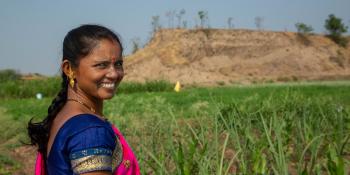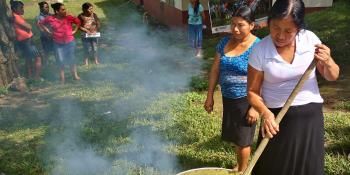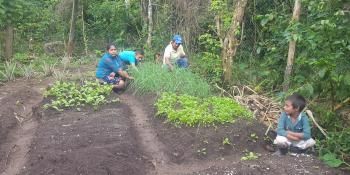Innovation and support for cattle producers needed to reduce significant emissions from cattle in Brazilian Amazon
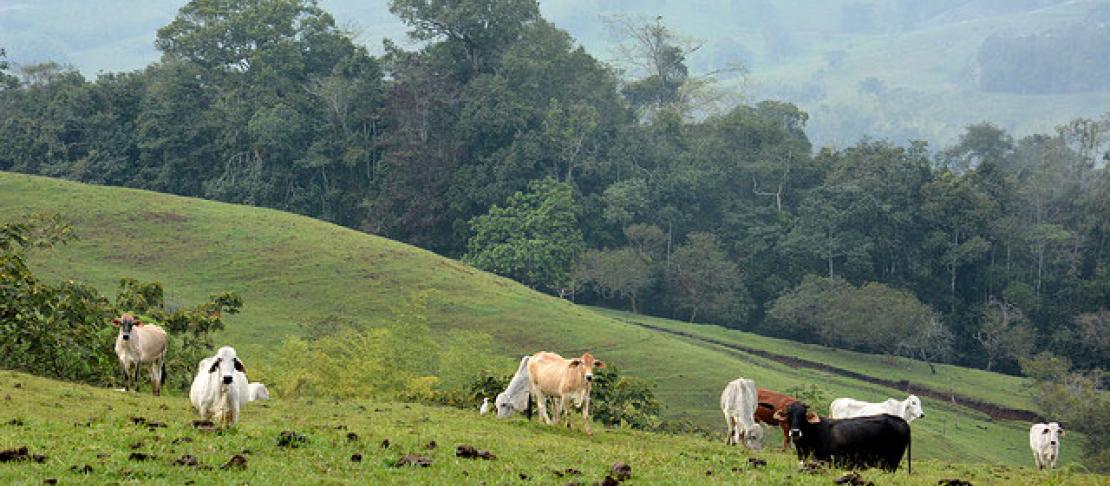
Producers that adopted sustainability programs gained financially and reduced emissions, but innovations and support are needed to increase participation.
Did you know that cattle ranching in the Brazilian Amazon contributes more to climate change than all of Viet Nam? According to the Intended Nationally Determined Contribution (INDC) presented by the Vietnamese Government to the COP21, Viet Nam emitted 246 million metric tons of greenhouses gases (GHGs) in 2010, measured in carbon dioxide equivalents (MtCO2e). Meanwhile, livestock in Brazil directly emitted 256 MtCO2e and contributed to an additional 205 MtCO2e from deforestation. These emissions are at a globally significant scale, making mitigation opportunities for the livestock sector in Brazil a global priority.
While national policies on climate change and corporate commitments to sustainability are expanding, consumers are also increasingly aware of climate change and its causes. Together, governments, industry and consumers have now recognized the need to achieve more sustainable production of beef to reduce climate impacts. As part of the movement to achieve sustainability, producers also gain environmentally and socially desirable benefits.
To understand technical, financial, and legal incentives and barriers from the perspectives of farmers, industry, and governments, field researchers and scholars from CCAFS and partners* have been working together on the project ‘Advancing sustainable cattle production in Brazil’. Recently they released two strategic reports.
 Sustainability is good business for agriculture
Sustainability is good business for agriculture
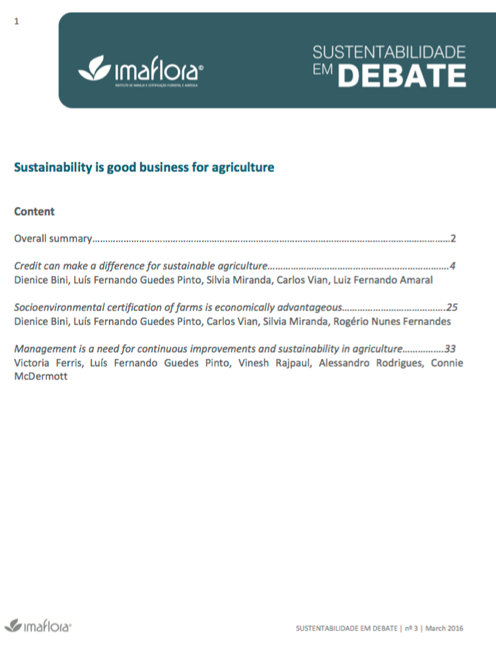 In the Sustainability report (available in Portuguese), researchers assessed whether sustainable management practices and environmental performance result in a competitive advantage for producers by analyzing large databases.
In the Sustainability report (available in Portuguese), researchers assessed whether sustainable management practices and environmental performance result in a competitive advantage for producers by analyzing large databases.
Three separate reports summarized facets of sustainability mechanisms and were discussed by agricultural policy leaders in Brazil.
Discussing the publication and the meeting in a recent blog published in Portuguese in the social entrepreneur journal Folha de S. Paulo, Luis Fernando Guedes Pinto, of CCAFS partner IMAFLORA, summarized:
Producers who adopt sustainability and management programs have better financial health, better economic results, and are more competitive.
Given these positive results for farmers, Pinto indicated that researchers still found a lack of public policies to support the improvement of the management and implementation of sustainability for farmers. Researchers found the fragility of technical assistance and rural extension to be a major barrier for producers to increased adoption of sustainability practices. According to Luis Fernando Guedes Pinto:
“Most Brazilian producers are on the margins of influence or participation in public policies, including credit or technical assistance. Thus, there is a huge challenge to include the great mass of Brazilian farmers in a process of education, management and the first steps towards qualification for future membership in sustainability programs.”
Key findings and policy recommendations
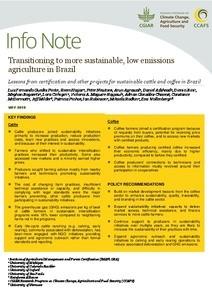 Moving from theory to the practice is a big challenge and the focus of a recent report compiling key findings and policy recommendations (available in Portuguese). They found that farmers who shifted to sustainable intensification practices increased their productivity. Some also accessed new markets, and a minority earned higher prices. Importantly, the GHG emissions per kg of beef of cattle farmers in sustainable intensification programs were 18% lower than beef from neighboring farms that did not adopt sustainable intensification programs.
Moving from theory to the practice is a big challenge and the focus of a recent report compiling key findings and policy recommendations (available in Portuguese). They found that farmers who shifted to sustainable intensification practices increased their productivity. Some also accessed new markets, and a minority earned higher prices. Importantly, the GHG emissions per kg of beef of cattle farmers in sustainable intensification programs were 18% lower than beef from neighboring farms that did not adopt sustainable intensification programs.
Policy recommendations include:
- Utilize market development lessons from the coffee sector to enhance sustainability, quality, traceability, and branding in the cattle sector.
- Support producers in sustainability initiatives over multiple years, as they are likely to increase the sustainability of their practices with time.
The team’s work brings together original and detailed information about why cattle and coffee producers in Brazil seek improvements in their social and environmental practices. The work also identifies barriers that hinder progress toward sustainability.
The collaboration of practitioners, certification experts, and internationals scientists and students is supporting analysis of sustainability programs from a wide range of perspectives. Together with producers, industry, and government, they will help reduce emissions from cattle ranching in the Brazilian Amazon while ensuring economic opportunity for the producers.
More information
Publications and a description of this project is available on this website at: Advancing sustainable cattle production in Brazil
CCAFS is also working with partners and stakeholders to advance sustainable production in Brazil in: Linking sustainable production and enhanced landscape governance in the Amazon: Towards territorial certification (TerraCert)
In Colombia and Costa Rica, CCAFS is supporting the transition to low emissions agriculture in livestock in the following project: LivestockPlus: Supporting low emissions development in the Latin American cattle sector.
*Partners of the project: Institute of Agricultural Management and Forest Certification (IMAFLORA), the Rainforest Alliance, the Universities of Michigan,Oxford and São Paolo, and the CGIAR Research Program on Climate Change, Agriculture and Food Security (CCAFS), with support from the Global Innovation Initiative.
Julianna White is program manager for low emissions agriculture research at CCAFS. José Luis Urrea is communications officer for Latin America regional program at CCAFS.


